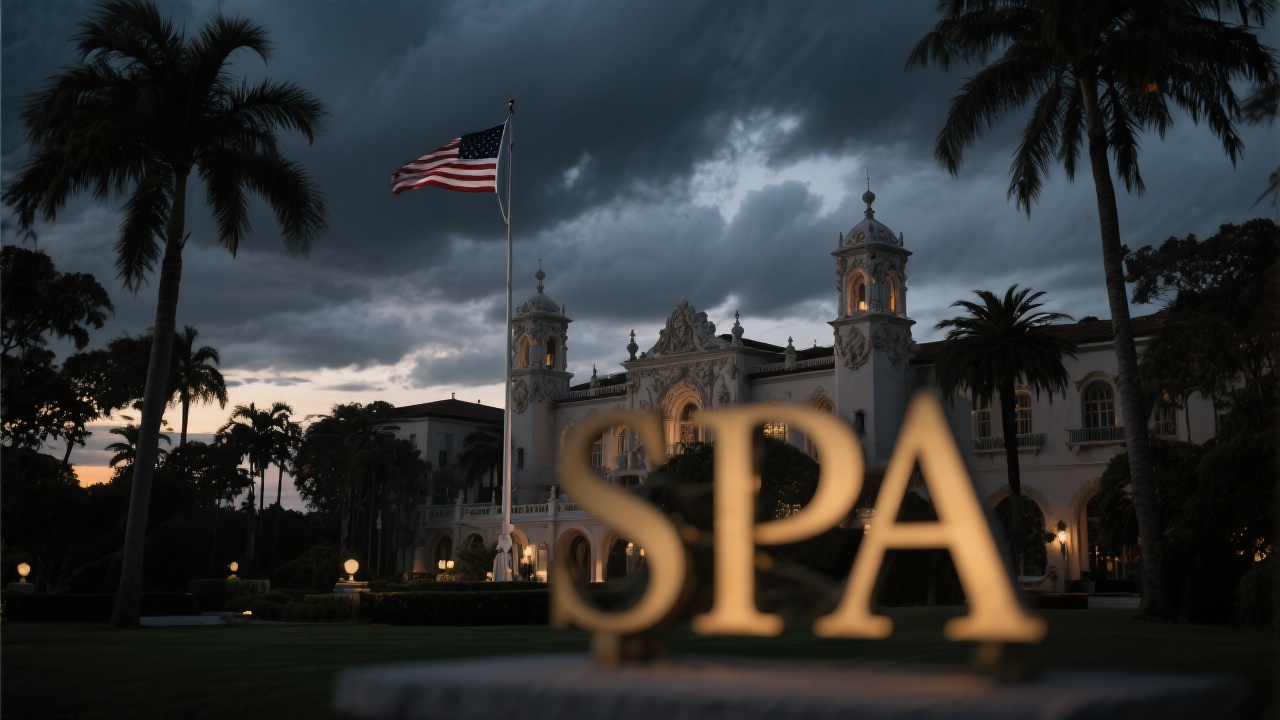
On a turbulent Tuesday, President Donald Trump, returning from Scotland aboard Air Force One, offered a new and deeply unsettling explanation for his long-rumored break with Jeffrey Epstein.
When pressed by reporters, Trump claimed that Epstein “stole” young female staffers from his Mar-a-Lago spa, specifically naming Virginia Giuffre, one of Epstein’s most prominent accusers, as among those “taken” by the disgraced financier. The president’s words, delivered with his characteristic blend of bravado and defensiveness, have reignited questions about what he knew, when he knew it, and how he chose to act—or not act—in the face of Epstein’s predations.
“He Stole Her”: Trump’s Shifting Narrative
For years, Trump’s public explanations for his falling out with Epstein have been a moving target. Sometimes it was a property dispute, other times a vague reference to “inappropriate behavior.” This week, the story shifted again. Trump told reporters that Epstein “hired away” spa attendants from Mar-a-Lago, including Giuffre, who was 16 at the time she was recruited by Ghislaine Maxwell, Epstein’s notorious accomplice. “I think so, I think that was one of the people, yeah. He stole her,” Trump said, when asked directly about Giuffre. He added, “People that worked in the spa. I have a great spa, one of the best spas in the world at Mar-a-Lago. And people were taken out of the spa. Hired. By him. In other words, gone” as per The Guardian.
This framing—casting the recruitment of a teenage girl into a sex trafficking ring as a kind of corporate poaching—has left many observers stunned. It’s a rhetorical move that flattens the horror of what happened to Giuffre and others, reducing it to a matter of workplace loyalty and business etiquette.
The Timeline Problem
Trump’s new account also complicates the already murky timeline of his relationship with Epstein. Giuffre was hired away from Mar-a-Lago in 2000, yet Trump continued to speak warmly of Epstein for years afterward. In 2002, he told New York Magazine, “I’ve known Jeff for 15 years. Terrific guy. He’s a lot of fun to be with. It is even said that he likes beautiful women as much as I do, and many of them are on the younger side.” Epstein remained a Mar-a-Lago member until 2007, well after his first arrest for soliciting prostitution from a minor.
If Trump’s break with Epstein was truly about the “theft” of Giuffre and other young women, why did he continue to socialize with and praise Epstein for years afterward? The president’s own words, and the public record, seem to be at odds.
What Did Trump Know, and When?
The most disturbing implication of Trump’s comments is what they suggest about his knowledge of Epstein’s activities. If, as he now claims, he was aware that Epstein was recruiting underage girls from his club, did he understand the nature of what was happening? Did he see it as a criminal act, or merely as a business slight? And if he knew, why did he not alert authorities, or at the very least, sever ties immediately?
This is not just a matter of optics or political gamesmanship. It’s a question of moral responsibility. Trump’s latest explanation, far from exonerating him, raises the specter of willful ignorance or, worse, passive complicity. As one commentator put it, “By partaking of the Epstein cornucopia, doubtlessly with knowledge of its depravity, Trump sinned profoundly by omission. He saw his pal poach his ‘employees’; he knew what for; and he did nothing.
The Human Cost: Remembering Virginia Giuffre
Lost in the swirl of headlines and political intrigue is the story of Virginia Giuffre herself. Hired as a teenager to work at Mar-a-Lago, she was lured into Epstein’s orbit and subjected to years of abuse. She became a leading voice for Epstein’s victims, naming powerful men—including Prince Andrew—as abusers. Giuffre died earlier this year, her life forever marked by the crimes committed against her and the indifference of those who might have intervened sooner.
